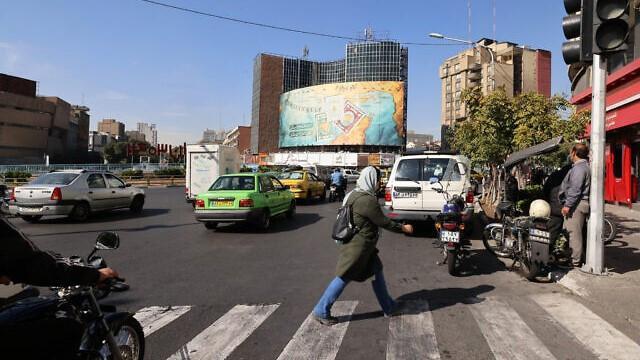
Iranian President Masoud Pezeshkian has announced the commencement of efforts to relocate the country's capital from Tehran to the southern borders, along the shores of the Persian Gulf.
According to reports from local media, Pezeshkian raised the issue of transferring the capital once again during his Nov. 20 visit to the Khatam al-Anbiya Headquarters, an Iranian engineering firm controlled by the Islamic Revolutionary Guard Corps (IRGC).
The president expressed his belief that leaving Tehran as the capital had become untenable due to various factors, primarily economic in nature.
"The capital of our country, Tehran, is beset with insurmountable challenges. Regardless of our efforts, we find ourselves wasting time. Therefore, our only viable alternative is to shift the nation's economic and political hub to a location closer to the south and the sea," he stated.
Vice President Mohammad Reza Aref has been tasked with overseeing the plans for the capital's relocation, Pezeshkian said.
The president warned that neglecting this matter could expose the country to environmental crises and numerous other challenges in the future.
The proposal to move the capital from Tehran, a city with a population of nearly 20 million, was initially approved by the Iranian parliament on Dec. 25, 2013, with 110 out of 290 members in favor. A council was established to explore the "most suitable alternative" for the new capital. However, no concrete steps have been taken in this regard to date.
Meanwhile, Pezeshkian held separate meetings in Tehran with Qatari Prime Minister and Foreign Minister Mohammed bin Abdulrahman Al Thani and Syrian Foreign Minister Bassam al-Sabbagh.
During his talks with Al Thani, Pezeshkian stressed the importance of expediting the implementation of previously signed agreements with Doha.
In his meeting with al-Sabbagh, Pezeshkian underscored the need to enhance cooperation between Tehran and Damascus, particularly in countering regional strategies by Washington and Tel Aviv. He urged Islamic nations to work collectively to oppose such plans.